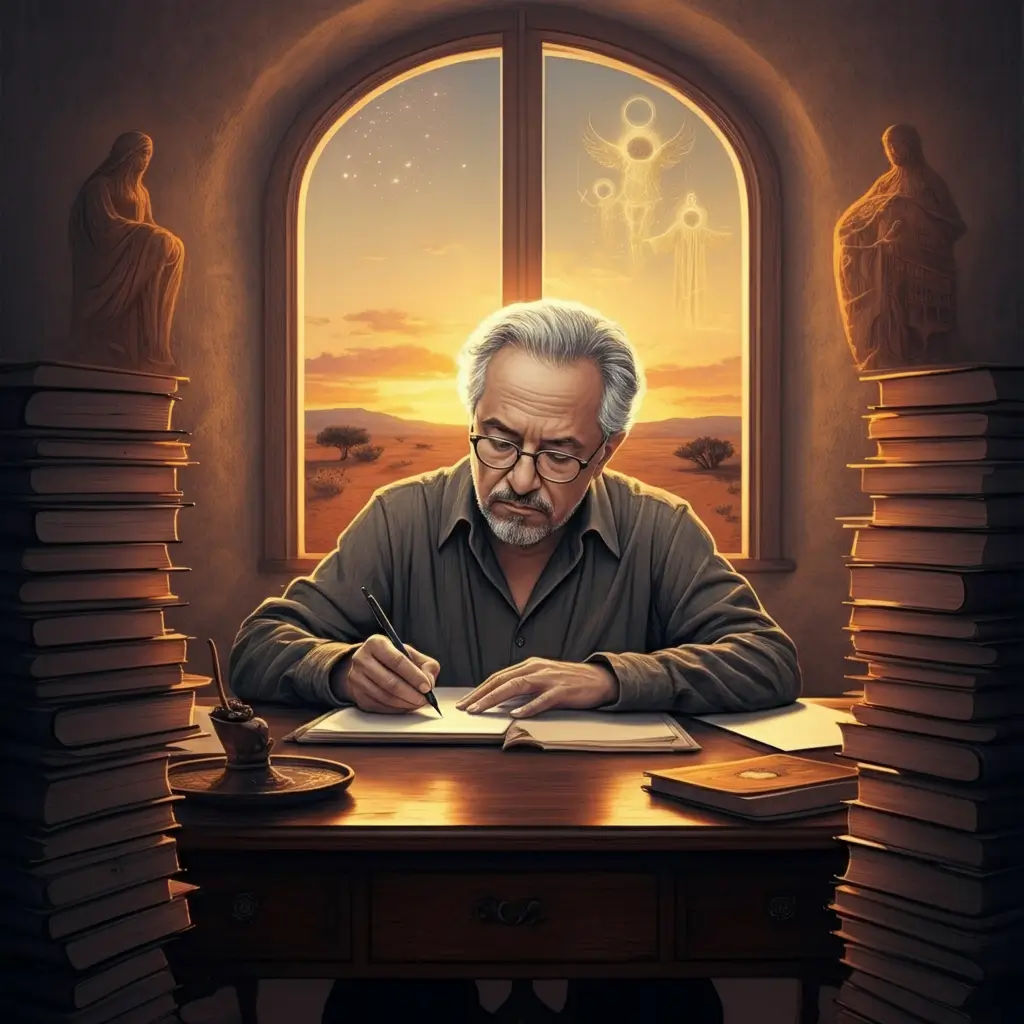Paulo Coelho needs no introduction for book lovers and aspiring writers. Best known for his international bestseller The Alchemist, Coelho’s works transcend the pages, offering messages of hope, self-discovery, and spiritual enlightenment. His words have inspired millions across generations, making his presence felt far beyond the literary sphere. But how did a rebellious young man from Brazil, with struggles that included mental health battles and initial literary failures, transform into one of the world’s most beloved authors? This blog dives into the extraordinary life of Paulo Coelho, exploring his unique path, challenges, and impact.
Early Life and Struggles
Born on August 24, 1947, in Rio de Janeiro, Brazil, Paulo Coelho was far from a conventional child. Raised in a strict Catholic family, he rebelled against societal norms and his parents’ expectations. His early life was marked by resistance to authority, particularly his parents’ plan for him to pursue engineering. Coelho wanted to write, a desire seen as unrealistic by his family.
Coelho’s rebellion wasn’t without consequences. Concerned about his behavior, his parents subjected him to multiple rounds of institutionalization in psychiatric facilities. Reflecting on this dark period, Coelho later remarked, “They did it thinking they were helping me.” The experience left scars but also shaped his compassionate worldview, a theme woven throughout his works.
One lesser-known fact about Coelho is his early fascination with the occult and his membership in a countercultural group. These experiences planted the seeds for his lifelong exploration of spirituality, symbolism, and human connection.
Career Beginnings
Before becoming an author, Coelho pursued a career as a songwriter. During the 1970s, he collaborated with Brazilian music legend Raul Seixas, co-writing numerous chart-topping songs that defined the era’s Brazilian rock scene. Despite enjoying some success in music, Coelho’s heart remained in storytelling.
Another defining chapter in Coelho’s early career was his extensive travels, which included a pilgrimage along the Camino de Santiago in Spain. This spiritual journey profoundly impacted his worldview and led to the creation of The Pilgrimage, one of his earliest literary works. This book laid the foundation for Coelho’s future themes of spiritual discovery, destiny, and interconnectedness.
The Alchemist’s Journey from Obscurity to Global Fame
When discussing Paulo Coelho’s legacy, The Alchemist inevitably takes center stage. Published in 1988, the novel tells the story of Santiago, a shepherd who journeys in search of treasure, uncovering profound truths about life and destiny along the way.
Remarkably, The Alchemist PDF was not an instant success. The book initially sold poorly in Brazil, with the first publisher dropping it after minimal sales. Coelho didn’t give up. He pushed forward and republished the book a few years later through another publisher. Word-of-mouth spread like wildfire, transforming the once-overlooked story into a literary juggernaut.
Today, The Alchemist has sold over 150 million copies, making it one of the bestselling books of all time. It has been translated into 80 languages, earning Coelho a Guinness World Record for the most translated work by a living author. Thematically, the book explores personal legends, the power of dreams, and the idea that “when you want something, all the universe conspires in helping you to achieve it.”
Other Notable Works
Though The Alchemist is his magnum opus, Coelho’s literary repertoire extends well beyond. His other works, including Brida, Veronika Decides to Die, and Eleven Minutes, reinforce his reputation as a writer who combines simplicity with depth.
- Brida: Centered around a young Irish woman’s exploration of wisdom and witchcraft, this novel merges mythology with Coelho’s signature search for meaning.
- Veronika Decides to Die: A powerful narrative tackling mental health, societal norms, and existential questions, inspired by Coelho’s own experiences with institutionalization.
- Eleven Minutes: A raw, unconventional exploration of love and sexuality, proving Coelho’s versatility as a storyteller unafraid to tackle taboo subjects.
Each of these works resonates with readers by addressing universal human experiences.
Spiritual and Philosophical Themes
At the core of Coelho’s writing lies a rich tapestry of spiritual and philosophical ideas. Concepts like destiny, the importance of pursuing one’s dreams, and the interconnectedness of humanity are recurring themes in his books.
Coelho’s personal experiences have played a significant role in shaping his literary voice. His Camino de Santiago pilgrimage deeply influenced his narratives, as did his engagement with various spiritual traditions and philosophies. His knack for weaving allegory and metaphor creates a narrative style accessible yet profound.
One of his most famous quotes, “The simple things are also the most extraordinary things, and only the wise can see them,” encapsulates his ability to distill complexity into relatable wisdom.
Impact and Legacy
“Coelho’s work is more than literature. It’s a philosophy of life,” said Madonna, a longtime fan of the author.
Indeed, Paulo Coelho’s impact stretches beyond bookshelves. His works have sparked movements, inspired countless readers to rethink their purpose, and solidified his place as a spiritual guide for the modern age.
But Coelho’s legacy isn’t without controversy. His unorthodox views, including his critique of rigid religious structures, have drawn criticism from conservative circles. Still, his ability to connect with readers on a profoundly personal level overshadows any detractors.
By offering messages of unity, hope, and courage, Coelho has redefined the role of literature in fostering spiritual and emotional growth.
Why Paulo Coelho Matters Today
Paulo Coelho is more than just an author—he’s a cultural phenomenon and a beacon of inspiration for those seeking meaning in their lives. From his humble beginnings to his global literary acclaim, Coelho’s life and work exemplify the power of perseverance, self-belief, and vulnerability.
Whether you’re a book lover, an aspiring writer, or someone embarking on your personal legend, Coelho’s story serves as a reminder that the universe indeed conspires to help you achieve your dreams—if you dare to pursue them.
Want to add more depth to your reading list or explore similar authors? Share your thoughts in the comments below!

No responses yet